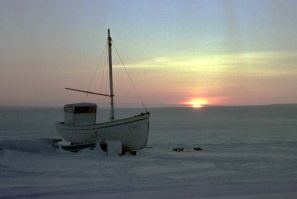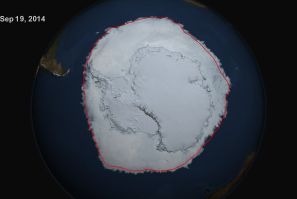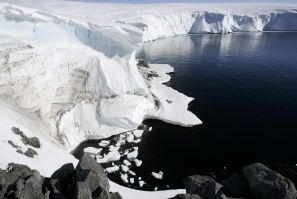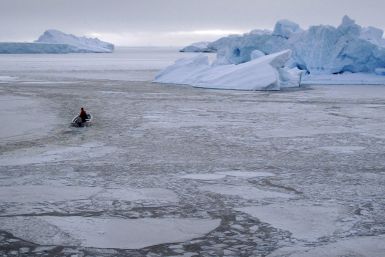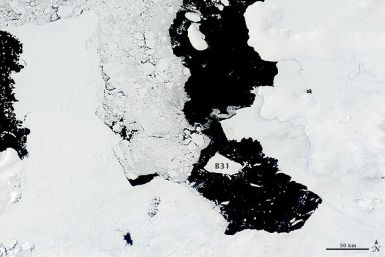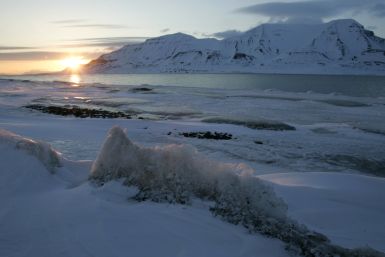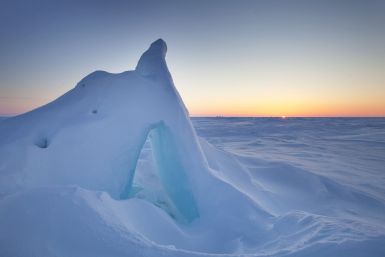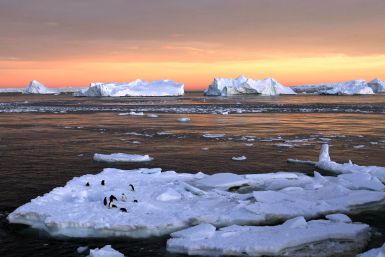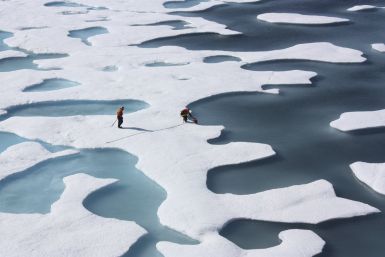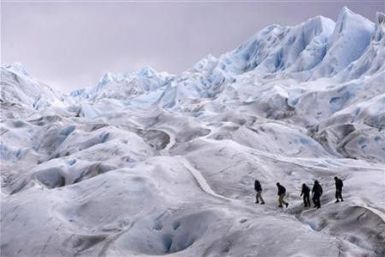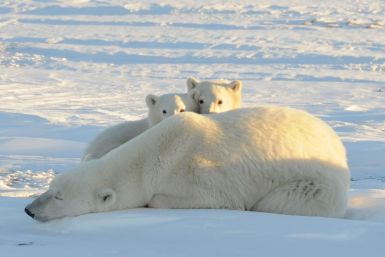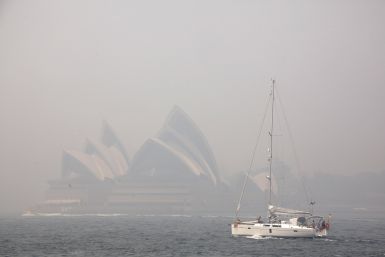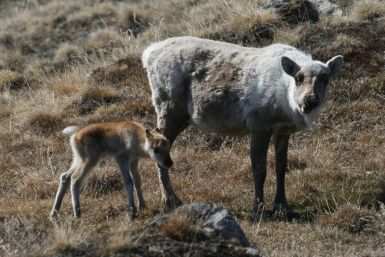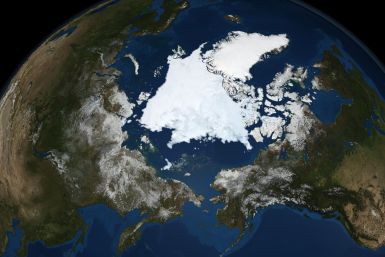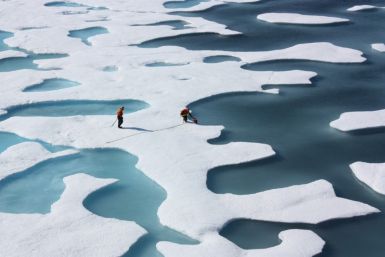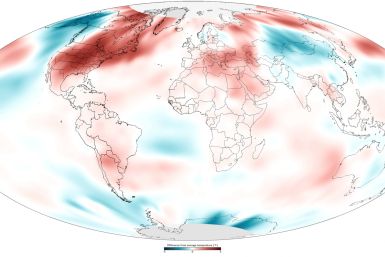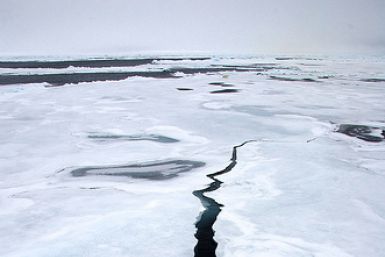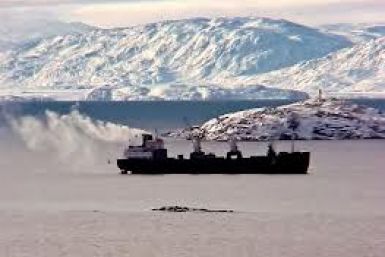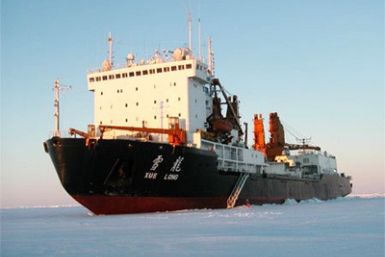The waves were recorded in 2012 in the Beaufort Sea, an area north of Alaska.
A video “selfie” of a polar bear is the first point-of-view footage of the Arctic predator ever obtained.
A giant iceberg that broke off from the Pine Island Glacier in western Antarctica is drifting toward the Southern Ocean, a new NASA video shows.
The sea-ice cover in the Southern Ocean in Antarctica has been relatively stable, while Arctic sea ice has been declining rapidly.
According to researchers, the reflectivity of the Arctic region fell to 48 percent from 52 percent between 1979 and 2011.
While extreme weather in the U.S. is in large part due to a “polar vortex” creeping down over the Northern hemisphere from the North Pole, scientists say weather patterns around the world are largely the result of climate change in Antarctica.
According to the European Space Agency, the Arctic sea ice got thicker over the past year, particularly around the Canadian archipelago and North Greenland.
Climate change is not only melting Arctic sea ice but also disrupting sea creatures' life cycles.
Changes in air temperatures could impact bats' abilities to navigate in the dark.
The findings further intensify a debate on the causes and role of global warming, and its impact on changing weather patterns across the globe.
Video of an enormous ice circle spinning in a river in North Dakota is making the rounds on the Internet.
Rising land and ocean temperatures in 2013 have been driven by an unprecedented increase in greenhouse gases.
Climate change is driving a wedge between caribou and the food they rely on during calving season.
The size of the minimum ice extent of the Arctic has been diminishing at a rapid pace over the last few years, and the trend continues.
Greenhouse gas emissions could lead to an ice-free Arctic as early as 2054 according to a new study.
Sea levels and temperature keep rising, and Arctic sea ice continues to shrink, NOAA says.
According to a recent study using a computer-simulation tool, the Arctic may experience its first ice-free summer as soon as 2054.
While the Arctic sea ice has been retreating over the past couple of decades, Antarctic sea ice has been expanding. What gives?
Sea ice in the Arctic has become as extensive as it's going to get this year -- and it's the sixth-lowest maximum on record.
The receding Arctic Ocean ice has opened up two major sea lanes that maritime shippers are using to cut costs.
2012 saw a record-breaking loss of Arctic sea ice, the fury of Hurricane Sandy, and discoveries that illustrate Earth's fragile beauty.
As climate change warms the world's oceans and Arctic sea ice recedes to its lowest -ever recorded levels, China has taken advantage of it -- and may soon reap commercial benefits






